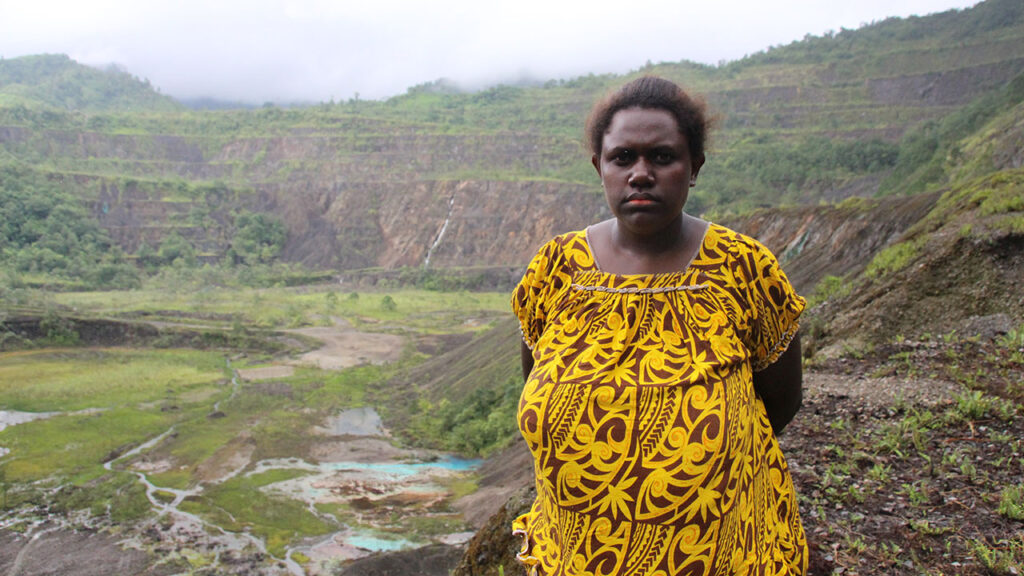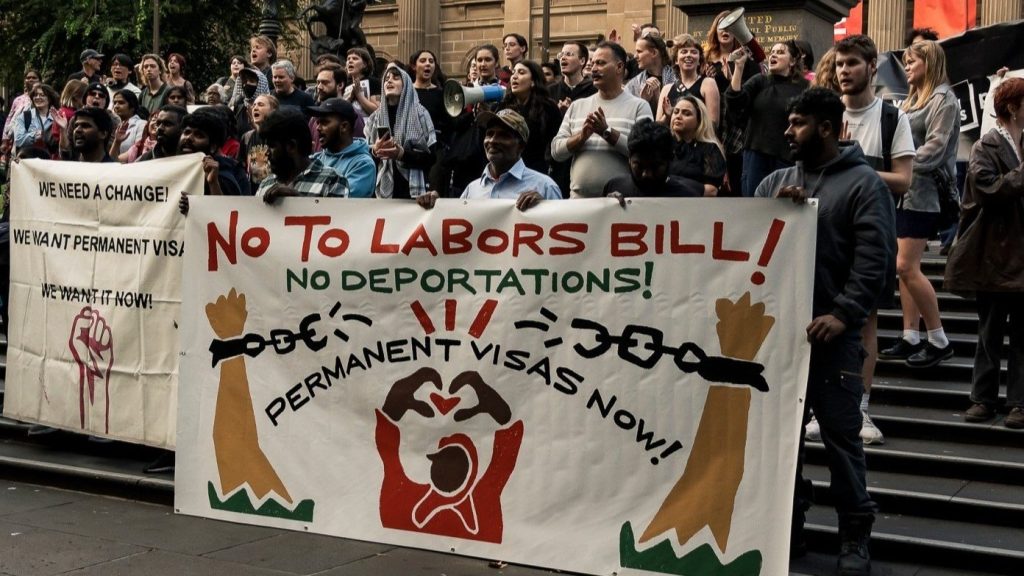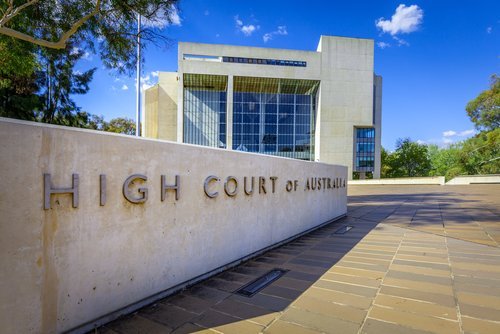New research shows Australia’s offshore detention policies increase modern slavery risks
A new report by the Melbourne Social Equity Institute and Human Rights Law Centre, Labour in Limbo: Bridging Visa E holders and Modern Slavery Risk in Australia, casts a new light on the continued suffering of people who sought safety in Australia by boat, finding that people on the 6-month ‘Final Departure’ Bridging Visa E are at increased risk of labour exploitation and modern slavery, such as wage theft, unpaid overtime, excessive hours, and abusive working conditions.
After years of enduring mistreatment in Manus Island and Nauru, over 1,000 people are now in Australia but continue to be denied stability and the chance to rebuild their lives. Over the past five years over 600 people (including children) have been abruptly cut off from government support and issued with 6-month bridging visas threatening to return them to harm offshore. While the visas are typically renewed upon expiry, this persistent insecurity creates vulnerability that enables labour exploitation to thrive, particularly in sectors such as horticulture where insecure work and abuse of migrant workers on temporary visas remain rife.
With Australia’s Modern Slavery Act currently under review, the report calls for stronger laws that require companies to take action to prevent modern slavery, and for an end to offshore detention once and for all, including pathways to permanency for people on perpetual bridging visas.
Ali (not his real name), a participant in the study who came to Australia seeking safety:
“They gave me a six-month visa bridging visa. You know, for someone who’s came without language without any support, I feel I’m lost, I didn’t know what I’m going to do. Eventually I started working as a machine operator in one factory. I work with them about one month, but then I got injured at work. They said for me, well, just stay home, we’ll come back to you later. Anyway, they sacked me from the job.
When I went looking for another job, some places told me ‘your visa is not permanent, we will not accept you because you don’t have permanent visa’. There is no security. So you are forced to go for some places to work cash in hand and accept under the minimum wage. I went through a very traumatic time, I think lots of people who are refugees also go through this.”
Freya Dinshaw, Senior Lawyer at the Human Rights Law Centre and report author:
“On one hand, Australia is looking to strengthen its modern slavery response. On the other we are creating the conditions for modern slavery to thrive by forcing vulnerable people seeking safety to exist on punitive temporary visas that expose them to exploitation and abuse. We must do better, and allow people like Ali to rebuild their lives in safety while requiring Australian companies to play their part in preventing modern slavery in their high-risk supply chains.”
Read ‘Labour in Limbo: Bridging Visa E holders and Modern Slavery Risk in Australia’ here.
This report was produced through a collaboration between Human Rights Law Centre and the University of Melbourne Social Equity Institute’s Community Fellows Program. It was written by Freya Dinshaw under the supervision of Professor Susan Kneebone of the Melbourne Law School.
Media contact:
Thomas Feng 0431 285 275
thomas.feng@hrlc.org.au

Bougainville community leaders demand seat at the table in remediation discussions with Rio Tinto
Bougainville community leaders are calling for a seat at the table in discussions about the potential remediation of the environmental devastation caused by Rio Tinto’s former Panguna mine, scheduled to begin in Port Moresby today.
Read more
Nauru deportation delayed, but fight against new punitive powers continues
The Albanese Government has agreed to delay the deportation of a man to Nauru after he commenced legal proceedings on Friday. He is represented by the Human Rights Law Centre.
Read more
High Court challenge launched for man facing deportation to Nauru
Legal proceedings have today been filed for a man scheduled to be deported to Nauru on Monday, in the first exercise of the Albanese Government’s new third country deportation powers. The man is represented by the Human Rights Law Centre.
Read more


